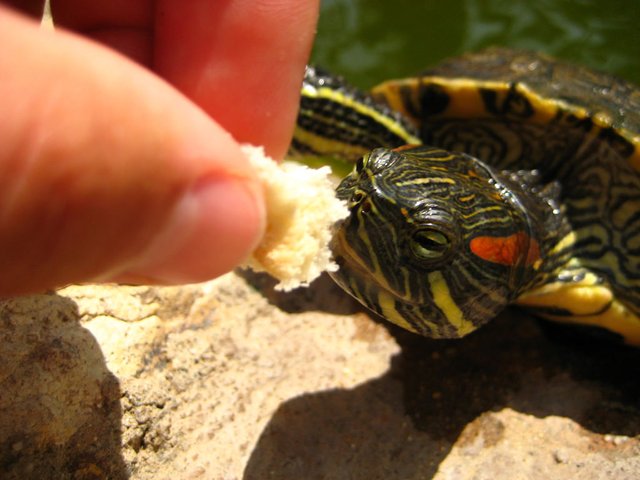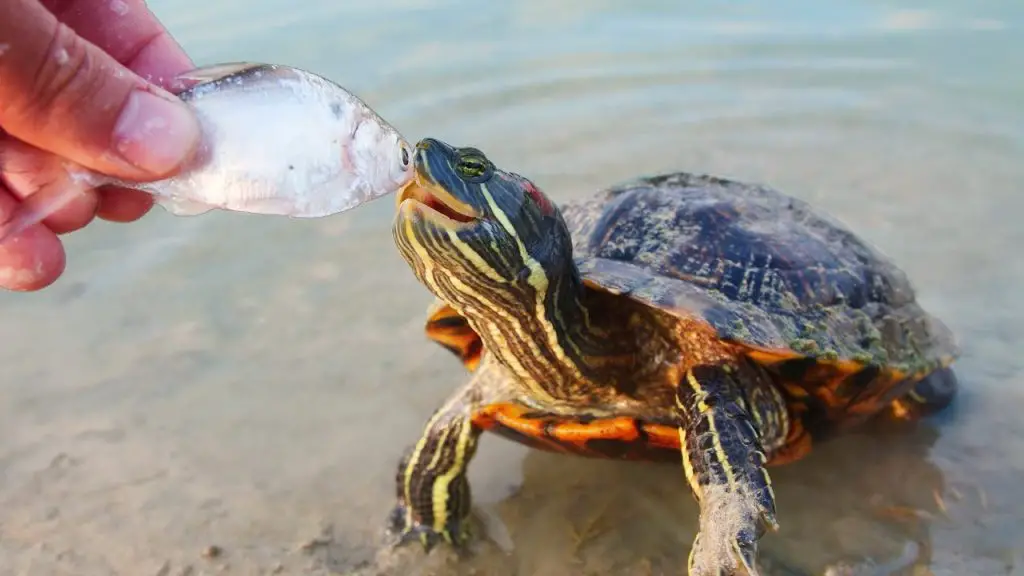When it comes to caring for turtles in a pond, providing them with the right food is essential for their health and well-being. Turtles are omnivores, meaning they eat both plant and animal matter. To ensure that your pond turtles receive proper nutrition, it is important to offer them a balanced diet that meets their dietary requirements.
Types of Food for Pond Turtles
There are several types of food that you can feed pond turtles to keep them healthy and happy. Here are some of the best options:
- Commercial Turtle Pellets: High-quality commercial turtle pellets are specially formulated to meet the nutritional needs of turtles. These pellets contain a balanced mix of protein, vitamins, and minerals essential for the turtles’ health.
- Vegetables: Turtles enjoy a variety of vegetables such as lettuce, carrots, cucumbers, and squash. These vegetables are rich in vitamins and fiber, which are important for their digestion.
- Fruits: Offer fruits like strawberries, blueberries, and bananas as occasional treats for your turtles. Fruits provide natural sugars and essential nutrients that can benefit their overall health.
- Insects and Worms: Turtles also enjoy live insects such as crickets, mealworms, and earthworms. These protein-rich foods can be a great addition to their diet, mimicking their natural hunting behavior.
- Commercial Turtle Treats: Treats like dried shrimp, bloodworms, and fish pellets can be given to turtles as a special treat. These treats should be fed sparingly to avoid overfeeding.

Credit: steemit.com
Feeding Guidelines for Pond Turtles
It is important to establish a feeding routine for your pond turtles to ensure they are receiving proper nutrition. Here are some guidelines to help you with feeding your turtles:
- Feed in Moderation: Avoid overfeeding your turtles as this can lead to obesity and health issues. Offer food in moderation and remove any uneaten food after feeding time.
- Variety is Key: Provide a diverse diet to ensure your turtles receive all the necessary nutrients. Rotate their food options regularly to keep them interested and healthy.
- Offer Fresh Food: Always provide fresh food to your turtles to prevent them from consuming spoiled or moldy food, which can be harmful to their health.
- Supplement with Calcium: Turtles need calcium for shell health. Consider adding a calcium supplement to their diet to ensure they are getting an adequate amount of this essential mineral.
- Monitor Their Health: Keep an eye on your turtles’ behavior and appetite. If you notice any changes or signs of illness, consult a veterinarian specializing in reptiles.
:strip_icc()/how-much-should-i-feed-my-red-eared-slider-1238367-5c59c9c646e0fb00012bb344.png)
Credit: www.thesprucepets.com
Additional Tips for Feeding Pond Turtles
Here are some additional tips to help you provide the best diet for your pond turtles:
- Seasonal Changes: Adjust their diet according to the season. Turtles may require more food during the active months and less during hibernation.
- Feed at the Right Time: Feed your turtles during the day when they are most active. Avoid feeding them late at night when they are less likely to eat.
- Observe Their Preferences: Pay attention to what types of food your turtles prefer. Some turtles may have specific preferences, so tailor their diet accordingly.
- Water Quality: Ensure that the pond water is clean and free from contaminants that could affect the turtles’ health. Dirty water can lead to health problems for turtles.
- Consult an Expert: If you are unsure about the dietary needs of your pond turtles, seek advice from a reptile specialist or veterinarian to ensure they are receiving the best care.
By following these feeding guidelines and tips, you can provide your pond turtles with a nutritious and well-balanced diet that promotes their health and longevity. Remember that proper nutrition is key to keeping your turtles healthy and thriving in their pond environment.




